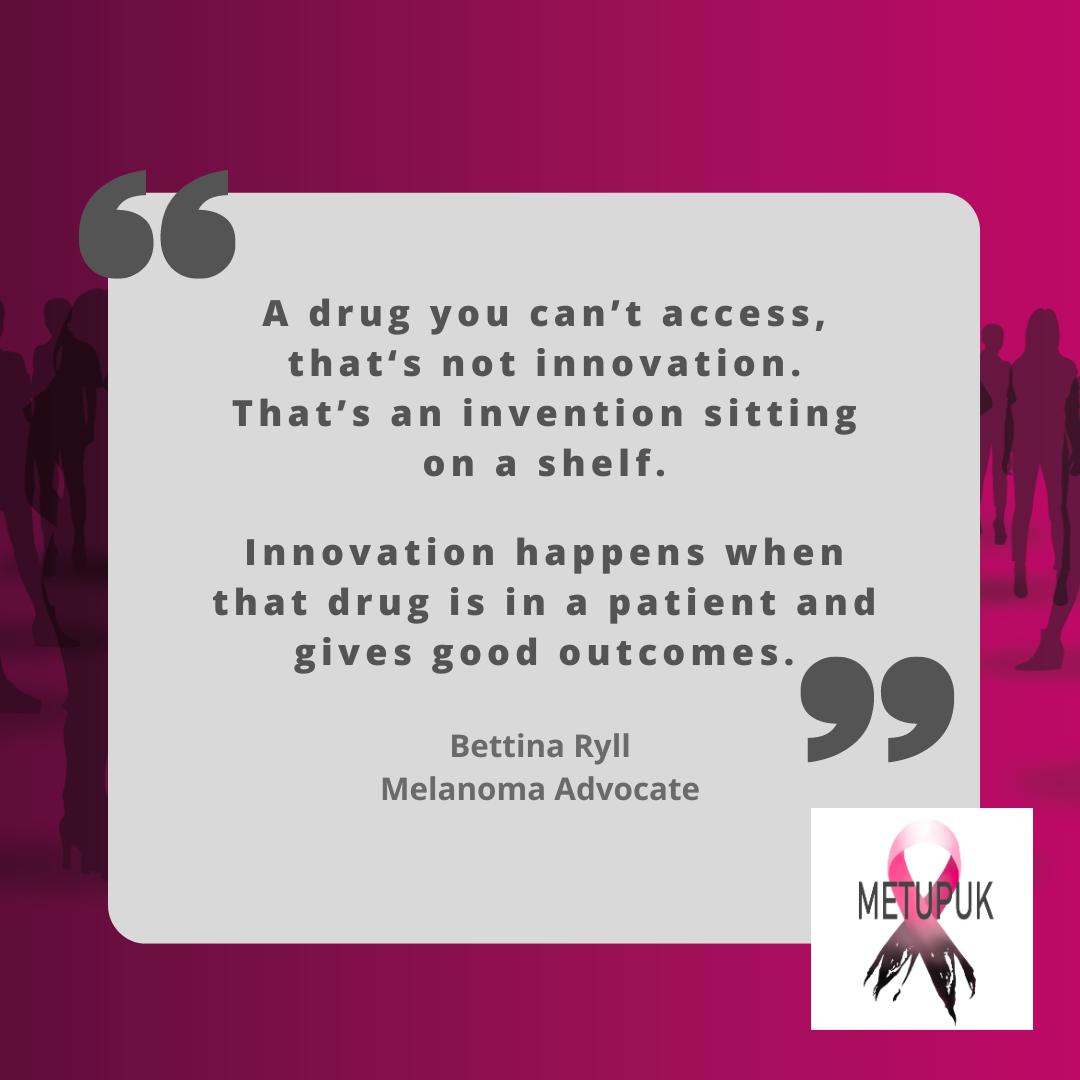
A cancer drug which received standing ovation from the Global Medical Community is being withheld from NHS breast cancer patients.
METUPUK are devastated by NICE decision not to recommend the drug Enhertu (trastuzumab deruxtecan), for routine use on the NHS in England for metastatic breast cancer (MBC) in HER2-low patients after chemotherapy.
Treatment options for HER2-low metastatic breast cancer after chemotherapy are limited and there is a huge unmet need for new drugs. Enhertu was met with applause by the international oncology community because it is the only drug with proven effectivity against HER2-low MBC. Enhertu is an innovative drug and it is an effective drug.
Charities have campaigned hard. METUPUK worked alongside Breast Cancer Now promoting their #EnhertuEmergency petition, signed by almost 300,000 people. Independent patient groups have campaigned hard, even taking a topless protest to Parliament Square. Today women are in tears. This is the truth of living with metastatic breast cancer. After so much campaigning their voices have been dismissed as not “value for money”. They feel invisible. They are dying faster because of this decision.
Enhertu has been turned down on the basis of cost. The current form of the severity modifier has influenced this NICE decision. In the last 6 years, there have been 21 positive breast cancer recommendations, but only two of these have been under the new severity modifier. To date 18 European countries including Scotland have approved Enhertu for HER2-low MBC after chemotherapy for reimbursement.
At METUPUK we support the severity modifier. The severity modifier has two tiers which increase willingness to pay: Moderate which gives a 1.2 increase and high which gives a 1.7 increase. Diseases are assigned a severity modifier by assessing the amount of health lost (shortfall) compared to people without the disease. Absolute shortfall looks at the total amount of health lost and proportional shortfall looks at the proportion of remaining health lost.
The severity modifier replaced a previous inflexible system of paying more money for End-of-Life drugs. Many important drugs for severe conditions did not get additional funding. However, the severity modifier is not working in its current form.
We propose the following changes:
Absolute shortfall – Retain this at current thresholds because it supports access to medicines for children and young adults with severe diseases.
Proportional shortfall – Change the threshold for the highest 1.7 severity from 95% to 90% of health lost. This will capture more severe diseases, including HER2-low MBC after chemotherapy. This could be implemented NOW (today) and Enhertu would be available immediately to these patients.
Taper the severity modifier – Having two discrete categories fails to fully capture the full spectrum of severity.
Think Drug not Disease – The End-of-Life criteria required treatments to increase life by three months or more. Under the current system, no survival benefit is required to be assigned the highest severity because it is based on the disease not the benefits treatment can offer. We propose that only drugs which increase survival by three months of longer should be assigned the highest 1.7 severity.
We believe these changes are affordable.
We know that there is money to cover these changes and way more. More drugs would be allocated the highest severity, but there are contracts between the pharma industry and the NHS that require any overspend on medicines to be offset by rebates. For example, the VPAG (voluntary scheme for branded medicines pricing, access and growth) is a yearly cap on the total allowed sales value of branded medicines to the NHS each year. Sales above the cap are paid back to the government via a levy.
By restricting the high severity modifier (1.7) to drugs which improve overall survival, the NHS will target funds to the most effective drugs and incentivise the development of treatments which extend lives.
If this was your wife or daughter would you be happy with this decision?
Maybe it is time for society to understand that people who do not have private medical insurance will continue to struggle to access innovative life saving drugs if relying on the NHS.
We demand change.
Improved drug access allows us to stay #BusyLivingWithMets and increase our survival outcomes aswell as contribute to society.
METUPUK
